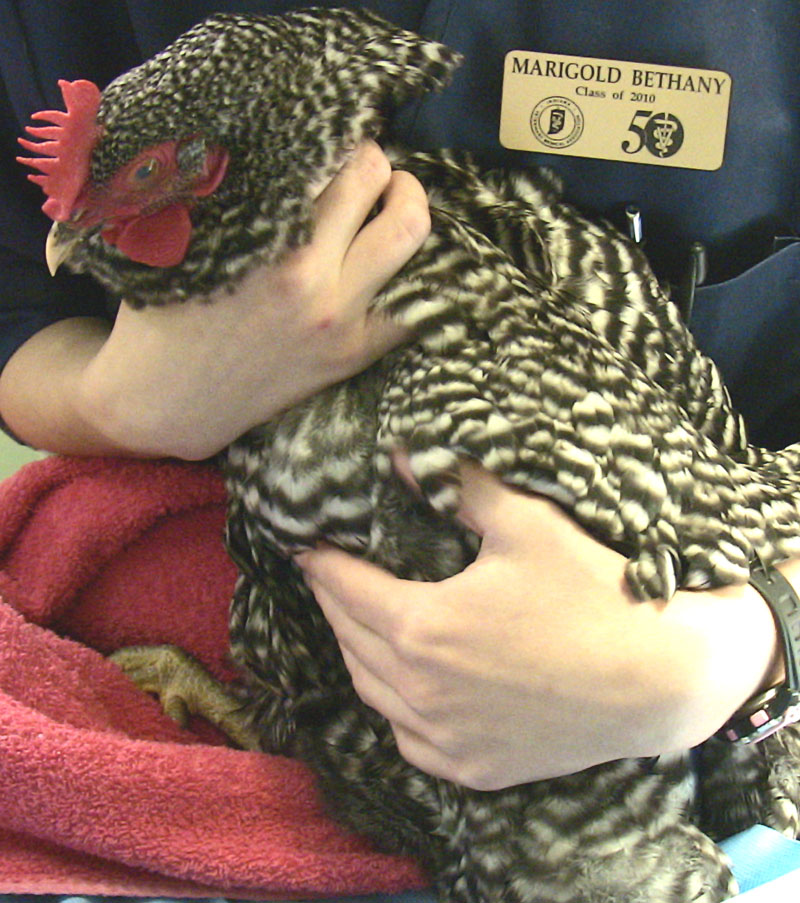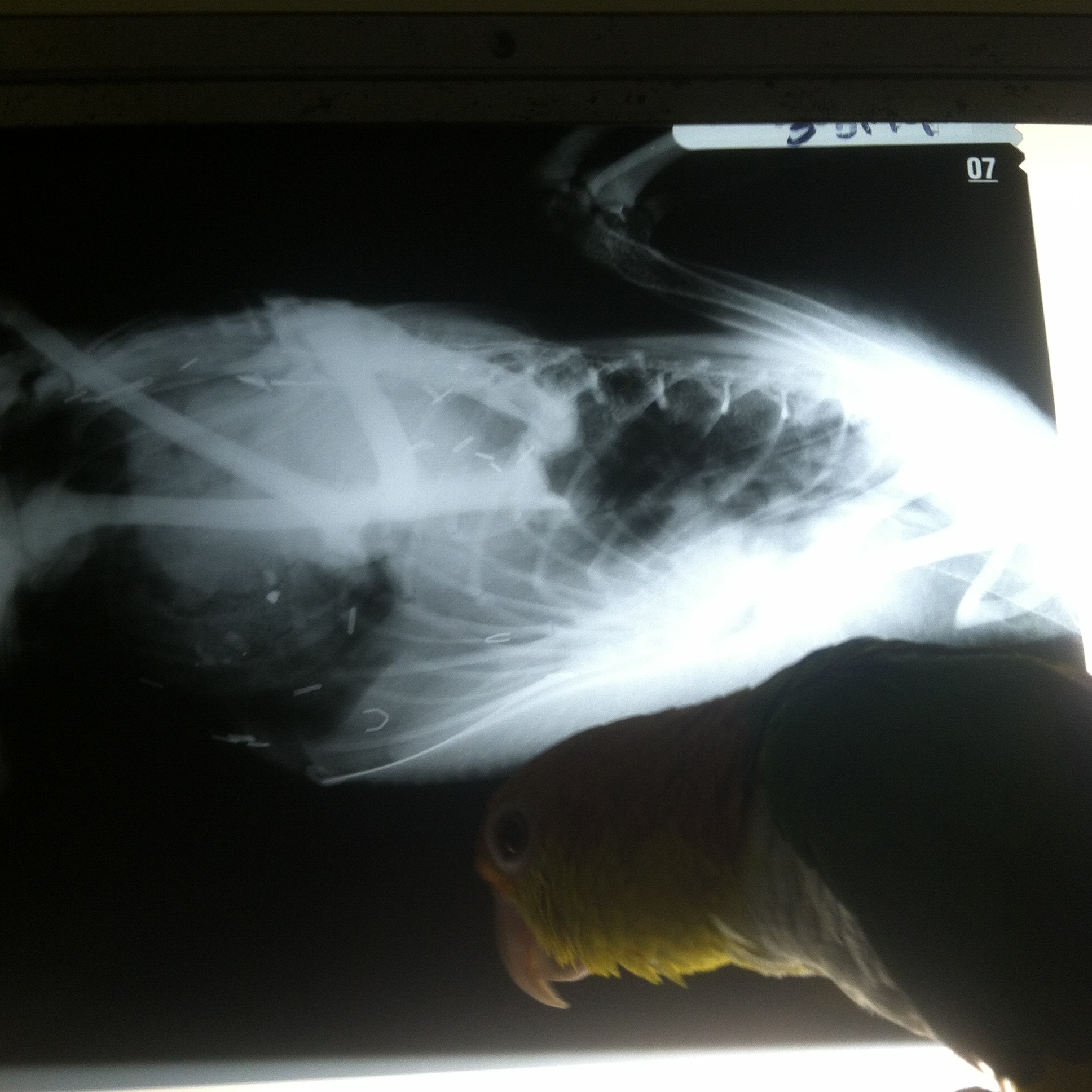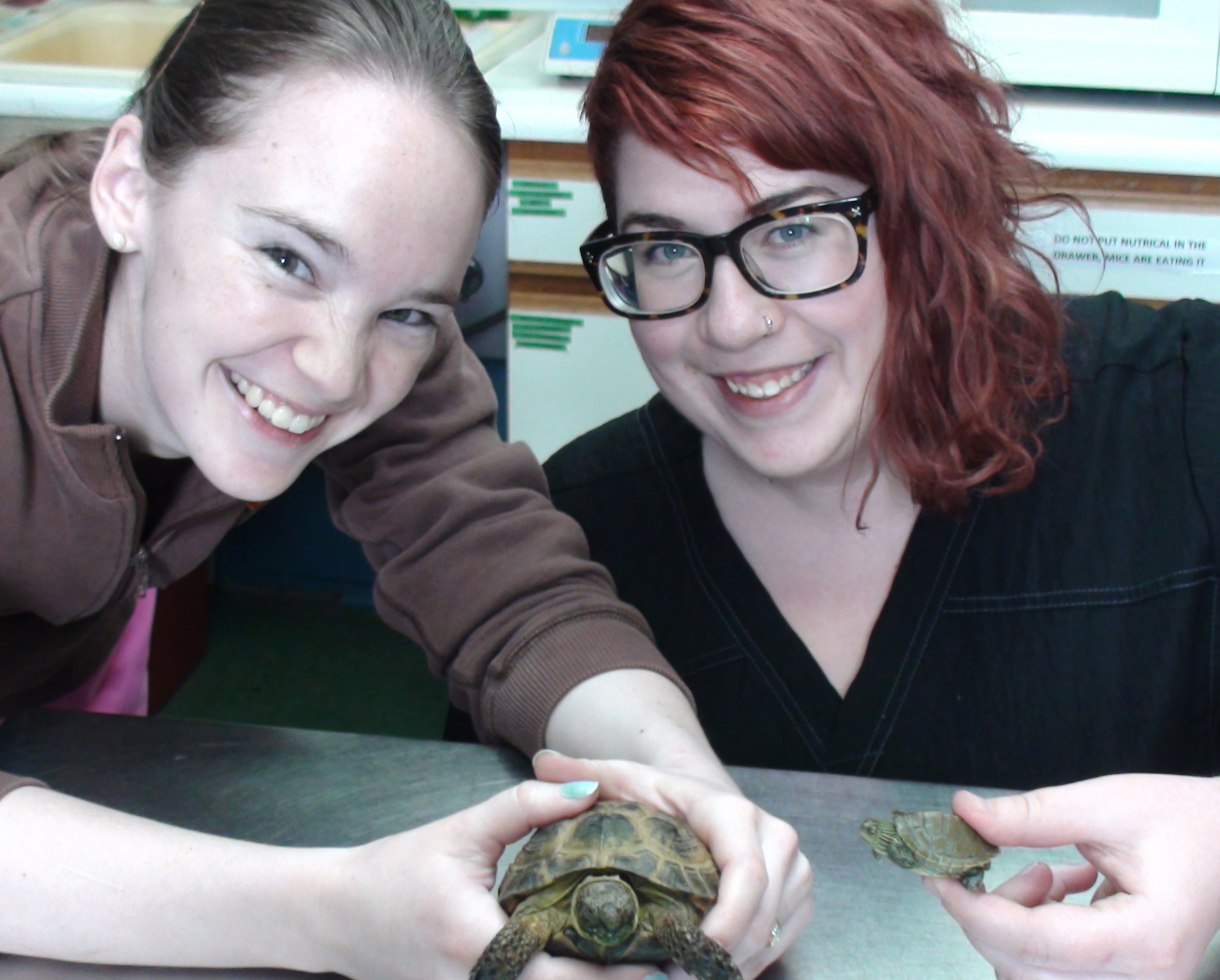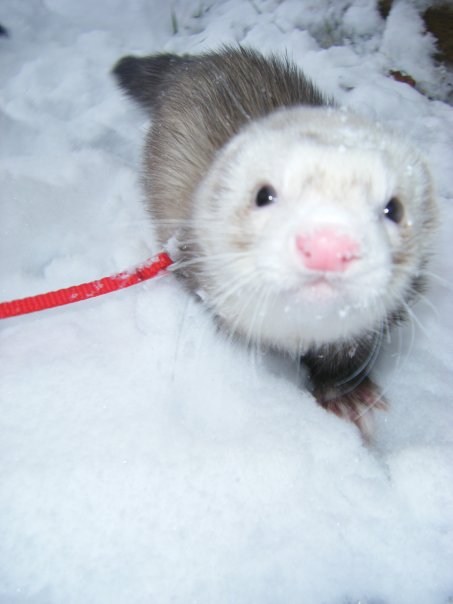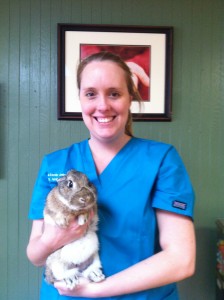 Every once in a while me meet our patients in unusual ways. This male rabbit was found outside, with no history, and no idea who his owner might be.
Every once in a while me meet our patients in unusual ways. This male rabbit was found outside, with no history, and no idea who his owner might be.
He had the great misfortune of being caught in a live trap, and then shot by someone with an arrow. Fortunately the arrow did not kill him, but the impact fractured his rear leg beyond repair.
Indiana House Rabbit rescued him and volunteers brought him in to the clinic right away. Intern Dr. Heather Goldstein examined him, and provided antibiotics and pain relief. A few hours later, he was in surgery for leg amputation (and neuter) by resident Dr. Amber Lee.
He's now recovering very well, and adjusting to life on three legs. Indiana House Rabbit volunteers will now be taking over his care and are asking for donations towards his medical bills. Eventually, IHRS is hoping to place him with a family that will be sure he doesn't go roaming outside again! After all, he doesn't have any more extra body parts he can spare!
If you would like to contribute towards Arrow’s medical bills, you can contact the Indiana House Rabbit Society or you can contact us directly at 317-879-8633.





